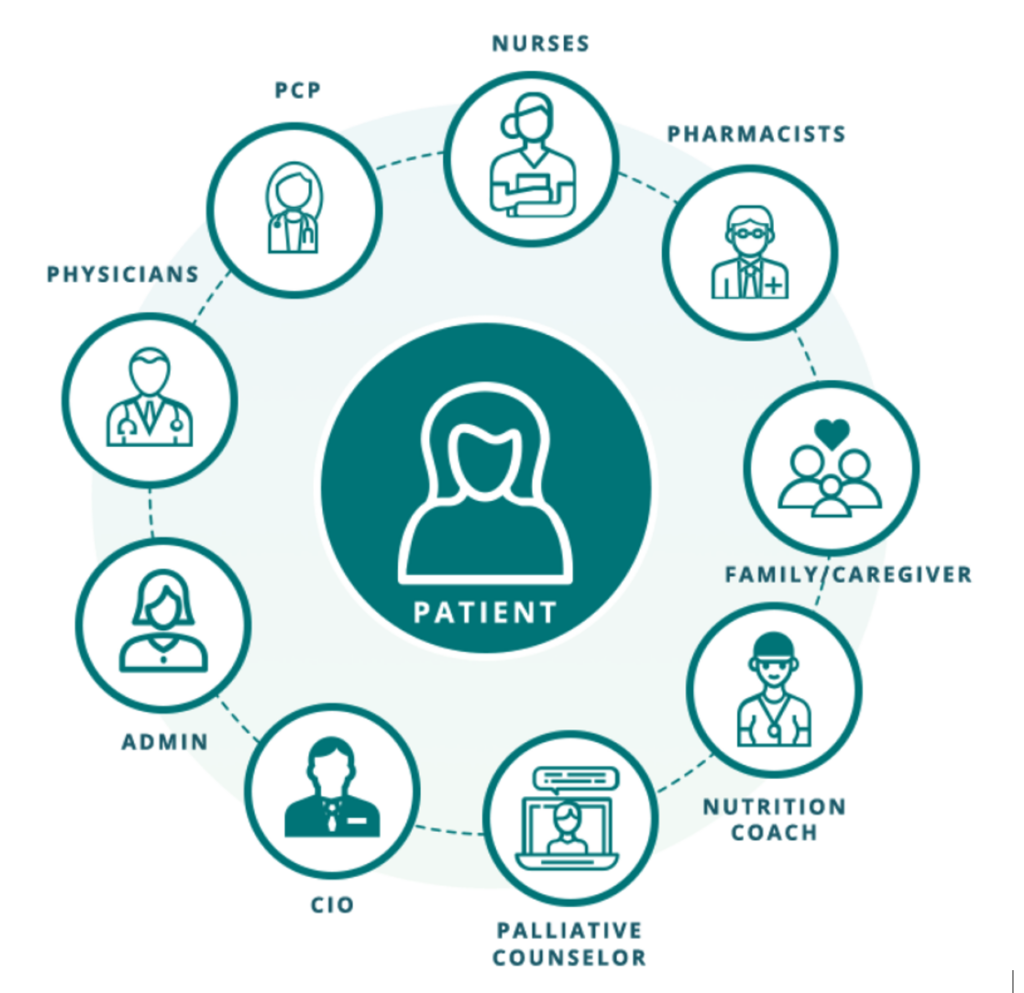Christie McWilliams
Mar 6 2024
Reading Time: 4 minutes
As the shift toward patient-centered care continues, pharmacies are often at the hub of several healthcare stakeholders, including manufacturers, providers, payors, caregivers and patients. This means pharmacy workers are uniquely positioned to work with patients as they undergo treatment, with the goal of supporting better health outcomes.
The main ways pharmacies—and especially specialty pharmacies—can support patient-centered care are by improving access to necessary medication, providing support for care coordination, and educating patients. We’ll explore all three angles.
What is patient-centered care?
According to the Centers for Medicare and Medicaid Services (CMS), patient-centered care (also called person-centered care) is when health care providers work collaboratively with patients to determine what is best for a patient’s health and well-being. Effective patient-centered care includes access to patient data for all of a patient’s health care providers, so everyone has the information they need to make appropriate care decisions.

Access to prescribed medications
Consistent access to specialty drugs can be an issue for patients. Changes in health plan coverage, issues with drug availability and changes to reimbursement can all create confusion for patients and lead to difficulty getting a prescription filled.
Specialty pharmacies can help make sure patients get the medications they need. They have the expertise to manage complex provider and regulatory changes, and because of this, they are often a good resource for patients who are having difficulty accessing prescribed medications. These pharmacies can identify resources from drug manufacturers or state and federal programs to help patients manage prescription costs, which, by extension, helps those patients stay in compliance with their care plan.
Care coordination and provider communication
Better communication between the provider, pharmacy and patient helps improve health outcomes. For example, a provider needs to know if a patient is unable to afford a prescribed medication, or if the patient is unable to follow the prescription for any reason. The pharmacy is a first-line contact in such a case, who could alert the provider to any issue. This allows providers to be proactive and make changes to a prescription or care plan, with the goal of avoiding a return visit to the doctor’s office, or even a potential hospitalization.
Another way pharmacy staff can support patients is through ongoing, open communication. Being available for questions about refills, costs, drug interactions and side effects is a simple, yet sometimes overlooked way to help patients stay compliant with their treatment plan and improve outcomes.
Patient education
Many patients want to understand how to best manage their condition for a faster recovery, as well as how to prevent other diseases. Specialty pharmacies can extend their care role by supporting and empowering patients through education. From information about the proper dose and timing of their prescription medications to lifestyle changes patients can make, the pharmacist can have a major impact on a patient’s quality of life.
Technology also plays an important role in patient education. For example, CitusHealth’s Education Center is a source for on-demand support and resources for patients and their caregivers. You can use it to share therapy or diagnosis flyers with patients and health care staff. You can tailor materials to include your related services, or to direct patients to a drug manufacturer’s website for information on co-pay support programs for high-cost prescriptions. And because sharing is automated, it eliminates the hassle of ensuring everyone has up-to-date versions of resource documents, training materials or SOPs.
A recent study found that fewer than 60% of patients could accurately remember the diagnoses addressed during their inpatient stay — and even fewer remember medication changes. Read more about the study here.
Your pivotal role
Specialty pharmacy team members, including pharmacists and nurses, have a unique opportunity to expand their role in caring for patients by serving as a source for additional information and guidance, which can help improve patient outcomes and satisfaction. The combination of clinical and operational services pharmacies provide are key to helping patient through their care journey.
The shift from dispensing to direct patient care will be accelerated by technologies such as CitusHealth with video and messaging designed to be HIPAA compliant, automated workflows, and greater data connection and interoperability. Read more here.
Using technology to assemble and distribute valuable resources and information helps make the journey easy and accessible for both pharmacy staff and patients. Learn how CitusHealth can help your pharmacy deliver truly patient-centered care.